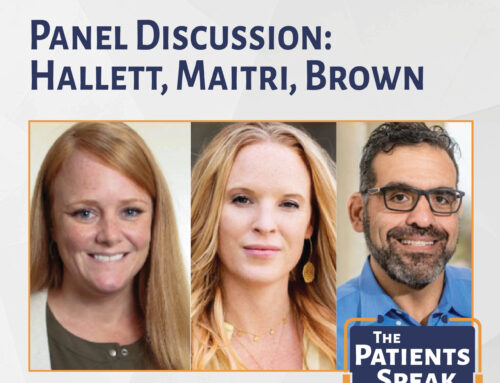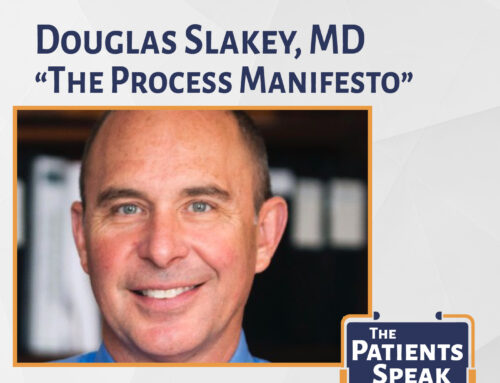While we are all striving to reach a place of equal access to health care, a number of disparities still exist. Together we can all move in the right direction.
The past few years have caused us all to take a step back and notice the racial and gender disparities in our society as a whole. Although these issues are often quite complex, the first step is noticing them, and this is definitely seen in the healthcare and patient activation space. Because now, more than ever, access for all matters.
Challenges
A number of challenges are often associated with equal access to healthcare as well as recruitment for clinical trials.
Location
Whether it is a local hospital or even the recruitment for a clinical trial in a certain area, the demographics are always unique. According to recent U.S. Census data, many cities may have diverse populations; whereas, others can be less diverse ranging from age to race and ethnicity. A quick look at the map on clinicaltrials.gov shows that the trial offerings among states vary greatly as well.
Income
Costs of participation are of concern to those who fall into lower income brackets, including some racial and ethnic minorities. Among these costs are those such as:
- Transportation – Transportation can be troublesome for individuals with low incomes due to distance to site locations, lack of reliable transportation, and cost of using taxis or public transportation
-
Insurance coverage – The cost of insurance, availability of coverage, and obtaining coverage for an entire family can greatly influence access to health care, medications, surgeries, and ongoing treatments.
While Medicare and most private insurance carriers cover the routine care costs of clinical trial participation, until this year state Medicaid programs had not uniformly provided coverage for clinical trials. A 2022 Applied Clinical Trials article stated that a new act, which went into effect in January, requires all state Medicaid programs to cover routine costs for clinical trials for their beneficiaries. The article also noted that Medicaid is “a key source of health coverage for many communities currently underrepresented in clinical research: nearly twice the proportion of Americans who identify as Black, Native American or Hispanic are enrolled in Medicaid.” This is encouraging news for low-income minority healthcare consumers.
- Time commitment – This is of especial concern for lower-income people, including some minorities, who cannot afford to take time off from work or childcare.
Additional Complex Factors
Many complex factors are more difficult to calculate and are often combined with many of the previous items. These factors typically affect those at the lowest income levels, including many minorities. They include:
- Lack of access to specialists
- Lack of trust in healthcare providers
- Language barriers
- Concern about the past history of experiments on minority patients
The Current State of Patient Recruitment
The FDA periodically releases reports that show demographic data for individuals who participate in clinical trials. The 2020 Drug Trials Snapshots Summary Report shows clinical trial participation and demographics for those who took part in trials for new molecular entities or new therapeutic biologics.
The 2020 report showed the makeup based on race and ethnicity of the 32,000 patients who participated in the trials:
- 75% White
- 8% Black or African American
- 6% Asian
- 11% Hispanic or Latinx
Compare this percentages to the percent of each of these populations in the 2020 census:
- 75.8% White
- 13.6% Black or African American
- 6.1% Asian
- 18.9% Hispanic or Latinx (also included in the White figure)
It’s clear that we have a way to go in trial participation when it comes to Black and Hispanic/Latinx individuals.
As stated previously, there are a number of factors that contribute to who participates in clinical trials. That said, there is room to broaden the spectrum to make sure that all who want to participate in clinical trials have access.
Impact
The current system in which patients find clinical trials, and even care, is far from perfect. This is demonstrated in 83bar’s recent survey of healthcare consumers on health-related related issues, including their experiences with clinical trials. Our survey, which is compiled and analyzed in a report called the Patient Pulse, found concerning statistics for minorities, including these examples:
- Black or African American respondents reported poor overall health, poor engagement with doctors, a strong desire to seek a second medical opinion and the highest use of free clinics. Only 39% had received a recommendation from a doctor to participate in a research study.
- Hispanic or Latinx respondents had low participation (28%) and one of the lowest rates of recommendation by doctors to participate in a clinical study.
Other insights come from a Deloitte Insights report published in November 2021:
“Enhancing meaningful representation of diverse participants in clinical trials would help provide information about drug response and measures of safety and efficacy in populations that have been historically underrepresented and understudied, Black and Latinx communities in particular.”
While disparities in healthcare have been the norm for a long time, it doesn’t have to be that way forever. In fact, providing the equity and access in which patients can get the care and solutions they need matters now more than ever.
Practical Application
At 83bar, we pride ourselves in our unique and inclusive Patient Activation Platform, which allows us to quickly engage with healthcare consumers online and through person-to-person contact with empathic, clinically trained staff. Our methods have been proven time and time again, giving us the unique ability to meet patients where they are now— regardless of race, religion, or gender. They also allow us to reach many patients who are outside of the current medical system and traditional referral pathways.
Furthermore, we often share throughout the journey that we do not discriminate based on race, age, ethnicity, or any other demographic information. Even though we’ve always operated this way, it’s important that patients understand that as well.
Moving Forward
While diversity in health care isn’t likely going to be solved overnight, it is encouraging to see that companies across the globe are understanding these complex issues and are willing to take steps to move in the right direction. Among them are Novartis pharmaceutical company, Merck biopharmaceutical company, Amgen biotechnology company, Takeda biopharmaceutical company, and GSK biopharmaceutical company.
In addition, advocacy groups are coming together to try to affect change. Watch our video, Racial Disparities In HealthCare: Roundtable Discussion, to learn more.
Recent growth in the use of decentralized clinical trials suggests one possibility for increasing diversity. The Decentralized Trials & Research Alliance glossary defines the decentralized trial as a “clinical trial utilizing technology, processes, and/or services that create the opportunity to reduce or eliminate the need for participants to physically visit a traditional research site.”
This kind of trial may increase participation by those who:
- Do not have reliable transportation
- Cannot afford the time off to travel to research sites
- Feel uncomfortable in unfamiliar clinical settings
This hypothesis has been borne out by a recent study published in JAMA Network Open that found that remote [decentralized] clinical trials with online recruitment had increased racial, ethnic, and geographic location diversity among study participants.
83bar strongly supports decentralized trials and the role they can play in increasing diversity. As an example, 83bar recently completed a project for finding participants for a decentralized clinical study to evaluate an at-home colon cancer screening test. The client asked 83bar to find a minimum of 1,000 participants for the multi-step trial. With the comfort factor of a trial where most steps could be completed at home, 83bar was able to locate more participants (1,400+) and a higher percentage of minority participants.
Connecting Clients and Patients
At 83bar, we’ve pioneered innovative methods to directly connect with a wide variety of patients to help them quickly find solutions to their unique health conditions. Our goal is to help transform this industry in the best way possible by empowering companies and patients to connect and meet their goals.
If you’d like to learn how 83bar can help grow your business and reach patients, schedule a quick call with our team.





